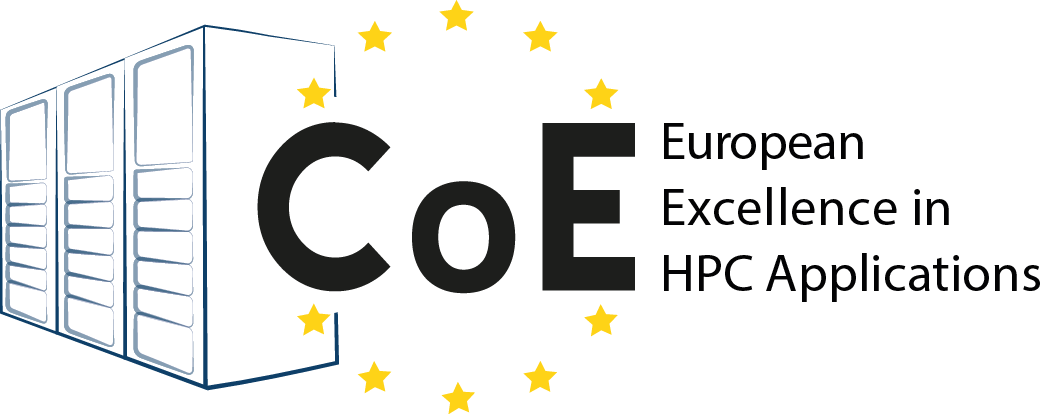The 27th IUGG General Assembly will be held July 8-18, 2019 at the Palais des Congrès in Montréal, Québec, Canada. This is a special opportunity for participants from Canada and from around the world to come together and share their science and culture. 2019 marks the 100th anniversary of IUGG; we will look back on the accomplishments of the previous century of Earth and space science research, and forward to the next century of scientific advancement.
BSC researchers Arnau Folch and Marisol Monterrubio Velasco will be presenting ChEESE at the 27th IUGG General Assembly, which takes place in Montreal, Canada from July 8-18, 2019.
Arnau will give several talks throughout the conference. He will present “FALLD-8.0: A computational model for atmospheric transport and deposition of tephra, dust, SO2 and radionuclides” at 5:00 pm – 5:15 pm on July 13. This is part of the session on Experimental and numerical modeling of volcanic processes and their impacts.
He will give another talk called “Reducing georisk trough Exascale computing in Solid Earth” on July 14. It is part of a session on Georisk Reduction: Science, Resources, and Governmental Action which is from 3:00 pm – 4:30 pm.
Finally, he will have another talk titled “Data Assimilation of Volcanic Ash Retrievals Using the New Generation of Geostationary Satellite Sensors” at 5:30 pm – 5:45 pm on July 14 as well.
Meanwhile, Marisol´s talk, titled “Urgent Seismic Computing: Earthquake 3D Simulations for Disaster Resilience”, is part of the Advances in Seismic Hazard and Risk Assessment session. It will take place at 11:15 am – 11:30 am on July 17.
Quantum molecular dynamics simulations are pivotal to understanding and predicting the microscopic details of molecules, and strongly rely on a combined theoretical and computational effort. One of the core actions of E-CAM has been to promote systematic developments of software, provide a repository to host and share code, and foster collaborations on adding functionalities and improving the performance of common software scaffolds for wavepacket (Quantics) and trajectory-based (PaPIM) packages. Collaborations on developments on other codes have also been initiated. This workshop aims at continuing and extending these activities based on input from the community.
- Dask: https://docs.dask.org/
en/latest/ - Dask_jobqueue: https://dask-
jobqueue.readthedocs.io/en/ latest/ - jobqueue_features: https://github.com/E-CAM/
jobqueue_features
Radical changes are foreseen in all aspects of high-performance computing systems over the next decade. The end of CMOS scaling is bringing new and emerging technologies (quantum, neuromorphic, etc.) and heterogeneous accelerators (GPUs, FPGAs, TPUs, etc.). Meanwhile, HPC applications are being complemented by machine learning and extreme data, and are evolving to model problems more difficult than previously thought possible. In this context, we need a thriving, high-quality and relevant European community in academic HPC systems research. This session will bring together academic researchers and interested stakeholders to discuss, assess and contribute to Eurolab4HPC’s vision for academic research in high performance computing. Four expert presenters will engage with the audience in a lively and hopefully controversial interactive session.
The TERATEC Forum is a major event in France and Europe that brings together the best international experts in HPC, Simulation and Big Data. It reaffirms the strategic importance of these technologies for developing industrial competitiveness and innovation capacity.
It welcomes more than 1 300 attendees, highlighting the technological and industrial dynamism of HPC and the essential role that France plays in this field. The participation and the testimony of senior industrial and ICT leaders, the diversity and the high level of the technical workshops, the representativeness of exhibitors and innovation offers displayed, are assets for all responsible concerned by simulation and high-performance computing.
At TERATEC Foum, FocusCoE organizes a joint booth serving as an information hub for all EU HPC CoEs. On Tuesday, June 11th, at 13:45, POP, EXCELLERAT, HiDALGO, and FocusCoE will have a booth talk.
One of the EXDCI-2 task will be organising a workshop on HPDA (in this context an abbreviation for HPC meets analytics, Big Data, AI, Machine-learning).
The workshop offers:
i) CoEs with experience to report on success stories, use cases (or problems);
ii) CoEs who’ve not yet gather much experience to learn from others & from the other technical talks.
This workshop is organised by VI-HPS for the UK PRACE Training Centre to:
– give an overview of the VI-HPS programming tools suite
– explain the functionality of individual tools, and how to use them effectively
– offer hands-on experience and expert assistance using the tools
On completion participants should be familiar with common performance analysis and diagnosis techniques and how they can be employed in practice (on a range of HPC systems).
An AiiDA (Automated Interactive Infrastructure and Database for Computational Science) plugin migration workshop will be held at EPFL Lausanne, Switzerland, aiming at collecting about 20 participants. AiiDA is in the process of preparing the AiiDA code towards the 1.0 release, in which we have recently introduced python 2 + python 3 support (already available in the 1.0 alpha releases).
This 3.5-day tutorial is designed to get Master students, PhD students and Postdocs from the field of computational materials science started with writing reproducible workflows. Participants will be introduced to the state of the art in workflow management and high-throughput computations by experts in the field, and gain in-depth hands-on experience using a tool that they can directly apply to their own research.
CAPRI (Critical Assessment of Predicted Interactions) is a community wide experiment designed to test methods for predicting the structure of macromolecular complexes based on the known structure of their components.
The meeting program will include an overview of the performance of protein docking and scoring procedures obtained for targets evaluated since the spring of 2013. It will also feature several plenary lectures by prominent scientists, as well as talks by the best CAPRI performers, and/or groups developing innovative computational approaches.
